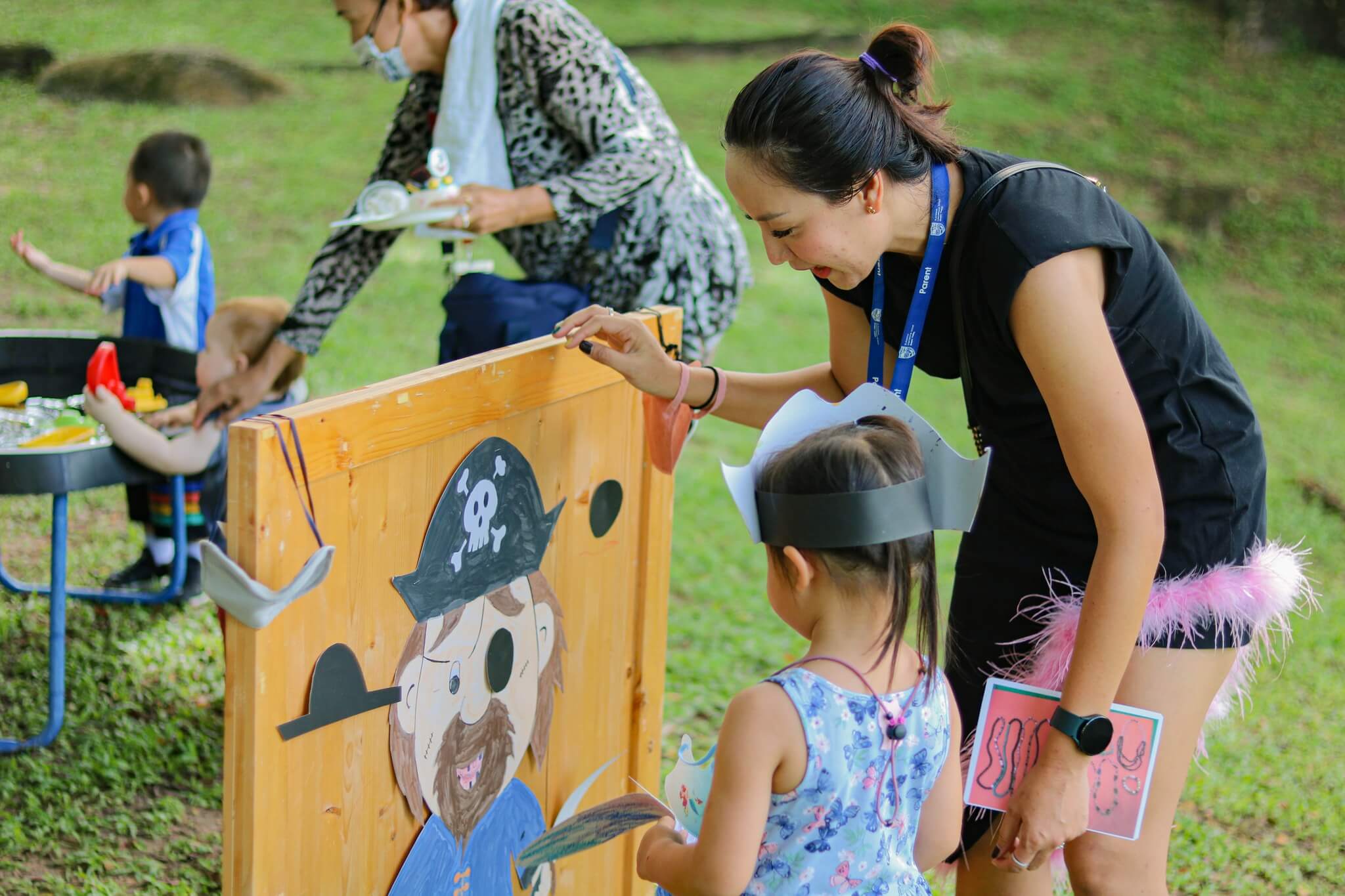Learning is not limited to indoor classrooms. There are also various ways of learning, including in the form of playing, experimental and outdoor education. These kinds of learning are far more important for children’s development than parents might think. In this article, we invite you to explore the world of alternative learning, and its impact on your child’s development. And more importantly how we, St. Andrews Green Valley, emphasise this in our holistic education.
- Outdoor education uses nature as a dynamic classroom, fostering creativity, emotional intelligence, and critical thinking through hands-on experiences.
- Key benefits include improved physical health, mental well-being, social skills, resilience, adaptability, and environmental awareness, enriching student growth.
- St. Andrews Green Valley integrates outdoor learning into the curriculum with programmes like the Forest School, adventure sports, environmental projects, and team games.
- By combining experiential learning with outdoor play, the school nurtures curiosity, confidence, teamwork, and a love for nature, preparing students for lifelong success.
What is Outdoor Education
Outdoor education is a dynamic and engaging approach to teaching that leverages nature as a classroom. It focuses on hands-on, real-world experiences, allowing students to learn by doing rather than passively absorbing information.
This type of education often includes activities like nature exploration, outdoor science experiments, orienteering, and group challenges. These experiences foster personal growth, emotional intelligence, and environmental stewardship, all while aligning with academic goals.
Unlike traditional methods, outdoor education encourages creativity and critical thinking by exposing students to unpredictable and stimulating environments. Whether it’s identifying plant species or solving group challenges, the possibilities are endless, making this form of learning both impactful and enjoyable.
How Outdoor Education Shapes Student Growth
The benefits of outdoor education extend beyond academic success. It’s a holistic approach that nurtures the body, mind, and spirit, enabling students to thrive in all areas of life. We encourage you to learn more about the advantages of outdoor education, how it may be used through play, and how it contributes to children’s development.
Outdoor Play And Child Development: What Are Outdoor Education Benefits?
Beyond fun time in nature, studies show that outdoor education offers numerous benefits, including:
- Physical Health: Outdoor activities promote fitness and combat sedentary lifestyles. Climbing and other physically demanding tasks improve strength, endurance, and overall health.
- Mental Well-Being: Being in nature reduces stress and anxiety while improving focus and mood. Studies show that students who spend time outdoors perform better academically and feel more connected to their peers.
- Social Skills: Collaborative outdoor activities teach students the importance of teamwork, empathy, and effective communication.
- Resilience and Adaptability: Overcoming outdoor challenges helps students develop perseverance and a problem-solving mindset.
- Builds Environmental Awareness: Experiences in nature cultivate care, respect, and sustainable attitudes towards the environment
- Hands-On Learning Opportunities: Outdoor settings encourage sensory engagement, inquiry-based learning, and creativity through direct interaction with natural materials
These advantages play a crucial role in the growth of children. By incorporating Symbolise Outdoor education into the curriculum, schools provide students with additional skills that are incredibly valuable for both their academic and personal journeys.
Impact of Outdoor Learning on Student Development
The effects of outdoor education are profound and long-lasting. Research highlights its positive impact on several areas as follows:
- Cognitive Development: Problem-solving tasks in nature stimulate critical thinking and decision-making skills. Students also develop an appreciation for interdisciplinary connections, such as the relationship between biology and geography.
- Emotional Development: Outdoor experiences build self-awareness and resilience. Facing challenges in nature—whether climbing a steep trail or navigating unfamiliar terrain—boosts confidence and emotional regulation.
- Social Development: Group activities foster interpersonal skills like leadership, cooperation, and empathy. Students learn to value diverse perspectives and work towards common goals.
Learning Through Hands-On Activities
Experiential learning thrives in outdoor settings, where students can immerse themselves in practical tasks. Hands-on activities provide opportunities for students to apply theoretical knowledge in real-world scenarios. For example:
- Science in Action: Collecting soil samples, identifying insects, or observing ecosystems allows students to experience science beyond textbooks.
- Team Challenges: Group tasks like building shelters or navigating obstacle courses encourage collaboration and critical thinking.
- Creative Expression: Nature-inspired art projects or storytelling sessions ignite creativity and enhance emotional expression.
Such activities not only reinforce classroom concepts but also instill a sense of accomplishment and joy in learning. In addition, these hands-on experiences also build up the love of learning and the sense of curiosity that comes along the way.
The Role of Outdoor Play in Child Development
Outdoor play is essential for a child’s physical, cognitive, and emotional growth. It creates opportunities for unstructured exploration and meaningful interactions, laying the foundation for lifelong learning and well-being.
Additionally, outdoor play plays a crucial role in developing key traits that foster both success and a passion for learning: curiosity, confidence, and teamwork. But how does this happen? Let’s dive into it next.
Encouraging Curiosity Through Exploration
Curiosity is a key driver of success, inspiring children to ask questions, seek solutions, and embrace challenges. Children are natural explorers, and outdoor play amplifies this instinct. By participating in outdoor education and playing with the environment, they develop observational skills and an intrinsic motivation to learn. Activities like nature walks, hiking and camping in national parks, and observing nature spotting foster curiosity leading to the love of discovering and learning. It. is not only deepens their understanding of the world but also nurtures responsible, mindful behaviours essential for becoming active global citizens.
Building Confidence Through Challenges
Confidence is crucial for future success as it empowers children to face difficulties with resilience, take calculated risks, and pursue their goals with determination. Outdoor activities provide children with opportunities to tackle challenges that push them beyond their comfort zones. Whether climbing a wall or navigating a trail, these tasks demand perseverance and effort, fostering a sense of accomplishment and building self-confidence. Additionally, the unpredictability of nature helps develop adaptability and creative problem-solving—skills that are essential in today’s ever-evolving world.
Fostering Teamwork and Collaboration
Outdoor activities designed for collaboration help children develop critical teamwork skills by working toward shared goals. Tasks such as setting up a campsite or solving group puzzles build communication, patience, and compromise. These experiences are essential for personal growth, teaching children to value diverse perspectives and build meaningful relationships. Teamwork and collaboration are crucial for future success, equipping children with the ability to navigate complex social environments, solve problems collectively, and thrive in professional and community settings where cooperation is key.
Outdoor Education at St. Andrews Green Valley
At St. Andrews Green Valley, outdoor education is an integral part of the curriculum. We recognise the value of experiential learning and outdoor education and commit to applying this holistic approach to build up children for their potential.
Integrating Outdoor Learning into the Curriculum
Outdoor education at St. Andrews Green Valley isn’t limited to extracurricular activities—it’s woven into the curriculum. From science experiments conducted in the school’s lush green spaces to geography lessons that include field trips, students experience a seamless blend of indoor and outdoor learning. This approach ensures that students not only excel academically but also develop essential life skills.
Forest School Programme
The Forest School Programme at St. Andrews Green Valley offers students a unique opportunity to connect with nature in a structured yet exploratory manner. Under the guidance of trained educators, students engage in activities like:
- Building and lighting campfires
- Crafting tools and shelters
- Exploring local flora and fauna
These experiences foster independence, creativity, and a deep appreciation for the environment.
Extracurricular Outdoor Activities
St. Andrews Green Valley provides a vibrant range of outdoor-focused extracurricular activities, helping students discover their interests and develop key skills. These programmes integrate outdoor learning with physical challenges, teamwork, and environmental stewardship to create a holistic educational experience. These include:
- Environmental Projects: Initiatives such as tree planting, wildlife conservation activities and sustainable gardening teach students the importance of sustainability.
- Forest School Activities: We offer experiences such as den building, fire lighting, flora and fauna identification, camp setup, and outdoor cooking. These activities foster teamwork, outdoor survival skills, and a deeper connection to nature.
- Adventure Sports: We provide rock climbing, kayaking, paddleboarding, horse riding and hiking for students. These activities challenge students physically and mentally.
- Team Sports: Outdoor games like soccer and cricket foster camaraderie and healthy competition.
These programs ensure that students enjoy a well-rounded education while developing a love for the outdoors.
Experiential learning through outdoor education is a powerful tool for fostering curiosity, confidence, and holistic development. At St. Andrews Green Valley, students thrive in an environment that prioritises hands-on learning and meaningful connections with nature.
By integrating outdoor activities into the curriculum and offering diverse extracurricular programs, the school prepares students to face future challenges with resilience, creativity, and a deep appreciation for the world around them.
Whether it’s navigating a forest trail or collaborating on a group challenge, every outdoor experience at St. Andrews Green Valley empowers students to grow into confident, capable, and compassionate individuals.






